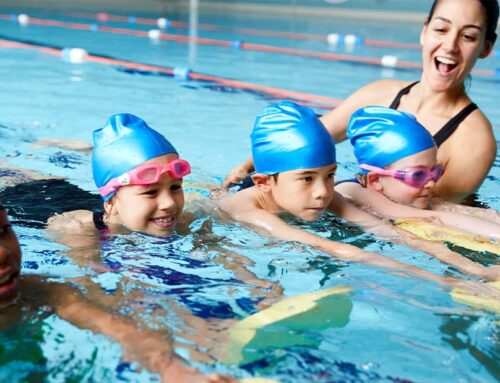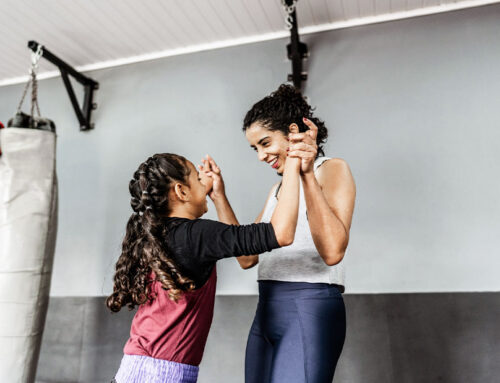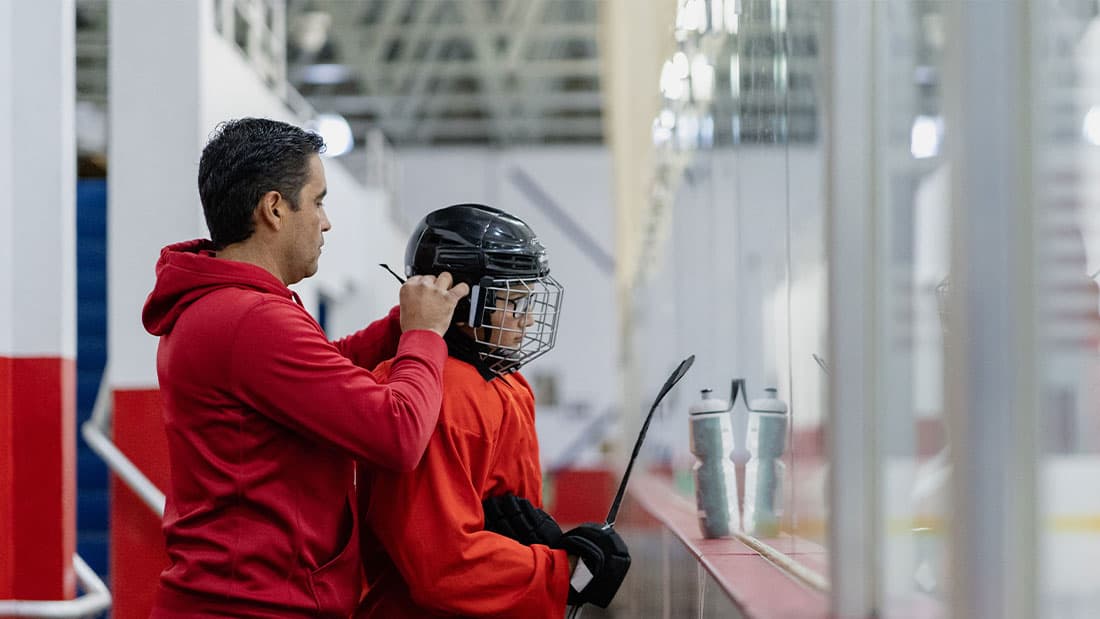4 Ways to Develop a Winning Mindset
A common quote thrown around the sporting community is: “Sports are ten percent physical and ninety percent mental.”
You might argue (and make a valid point) that this quote is only relevant to the elite of the elite, and I would undoubtedly agree. But there’s no doubting the importance of the mind in preparatory and competitive moments an athlete experiences. By preparatory experiences, I mean all the work an athlete does before a competitive event. This is key to developing the much-coveted winning mindset.
We could even take out the competitive event altogether, as many people who consider themselves athletes are only interested in the training aspect of the athlete life. However, these people often compete against themselves.
In relation to competitive experiences, I mean the games athletes play, events they compete in, fights they battle through—the competitive aspect that the majority of sportsmen and women work toward. But what exactly makes an athlete’s mind great, both in training and competition?
The 4 C’s of sports psychology
Concentration
Concentration is defined as the action or power of focusing all of one’s attention.
In simpler terms, we could say that concentration is the ability to focus on a specific task and devote all of our energy toward its completion. But why is this important?
Whether you’re training or in the midst of a competitive event, you must be focused solely on the task in front of you at that exact moment. I don’t mean the task of winning the game. You should think far more granularly.
Concentrate on the thing you have to do at that very instant. It might be passing a ball, making a run, or giving an instruction.
Whatever it is, give it your full attention and you’ll complete that task to the best of your abilities.
Ways in which you can improve your concentration:
- Sit on a chair for as long as you can without moving.
- Have a plan/program (particularly relevant for your training).
- Keep calm at all times.
Control
Control is heavily linked to concentration. It refers to the ability to remain emotionally stable (keeping your composure).
If you’re an athlete, you’ve probably been anxious before a game, and possibly angry during competition. These are two of the most common emotions you must control.
Anxiety can be fantastic. It’s often what makes the best athletes who they are. They want to be fully prepared going into a competitive event, and this want is spurred by an inner anxiety.
So use anxiety in your favor to prepare for your big game, but when it comes to kickoff, divert your concentration to the task at hand.
Likewise, anger has its uses, particularly in combat and collision sports. But don’t let it override your emotional system, because the last thing you want is to be banished from the game for an illegal tackle or fist fight.
The simplest way to manage anxiety is to stop, pause for a second, take a deep breath and be completely in the moment. Focus on what’s ahead of you this very second.
To manage anger, reduce the amount of negative language you use. Look at your sporting experience, visualize the impact you are going to have and make it a positive one.
Confidence
I doubt it will come as a surprise to you that confidence is a needed mental trait to be a successful athlete.
Just like control was linked to concentration, confidence is linked to both of the previous C’s.
You must also ensure you are not overconfident. You can do this through emotional control.
It’s really self-confidence you should focus on. How sure are you that you can be successful in life? And how sure are you that you can be successful in a specific sports movement or skill?
It’s the latter I’d like to focus on.
Improving your confidence in a specific sports skill is a simple task. All it takes is hours upon hours of practice.
When you practice a sports skill more and more, its execution becomes second nature to you. You’ll increase your confidence in that particular skill.
A simple example of this is fitness. If you have practiced and developed your fitness, you will have confidence that you can make that bursting run upcourt and still be able to defend if the ball is turned over.
Commitment
Our final “C” boils down to motivation.
To be committed to something, there is generally a need to be motivated to do it.
For example, we are motivated to eat due to hunger and we make a commitment to get food whatever way we can, hence the phrase: “I’ll eat anything.”
For a lot of people, it’s winning. For others, it’s pride. Others may only be committed for health reasons.
Identify what truly motivates you and focus on that aspect when you ask yourself why you’ve agreed to train at 6:30 a.m. every Saturday, or why you eat only chicken and brown rice for days at a time.
It’s motivation that will drive your commitment, and if there is none you should probably stop wasting your time and quit.
READ MORE:
Photo Credit: Digital Vision./DigitalVision/Thinkstock
RECOMMENDED FOR YOU
MOST POPULAR
4 Ways to Develop a Winning Mindset
A common quote thrown around the sporting community is: “Sports are ten percent physical and ninety percent mental.”
You might argue (and make a valid point) that this quote is only relevant to the elite of the elite, and I would undoubtedly agree. But there’s no doubting the importance of the mind in preparatory and competitive moments an athlete experiences. By preparatory experiences, I mean all the work an athlete does before a competitive event. This is key to developing the much-coveted winning mindset.
We could even take out the competitive event altogether, as many people who consider themselves athletes are only interested in the training aspect of the athlete life. However, these people often compete against themselves.
In relation to competitive experiences, I mean the games athletes play, events they compete in, fights they battle through—the competitive aspect that the majority of sportsmen and women work toward. But what exactly makes an athlete’s mind great, both in training and competition?
The 4 C’s of sports psychology
Concentration
Concentration is defined as the action or power of focusing all of one’s attention.
In simpler terms, we could say that concentration is the ability to focus on a specific task and devote all of our energy toward its completion. But why is this important?
Whether you’re training or in the midst of a competitive event, you must be focused solely on the task in front of you at that exact moment. I don’t mean the task of winning the game. You should think far more granularly.
Concentrate on the thing you have to do at that very instant. It might be passing a ball, making a run, or giving an instruction.
Whatever it is, give it your full attention and you’ll complete that task to the best of your abilities.
Ways in which you can improve your concentration:
- Sit on a chair for as long as you can without moving.
- Have a plan/program (particularly relevant for your training).
- Keep calm at all times.
Control
Control is heavily linked to concentration. It refers to the ability to remain emotionally stable (keeping your composure).
If you’re an athlete, you’ve probably been anxious before a game, and possibly angry during competition. These are two of the most common emotions you must control.
Anxiety can be fantastic. It’s often what makes the best athletes who they are. They want to be fully prepared going into a competitive event, and this want is spurred by an inner anxiety.
So use anxiety in your favor to prepare for your big game, but when it comes to kickoff, divert your concentration to the task at hand.
Likewise, anger has its uses, particularly in combat and collision sports. But don’t let it override your emotional system, because the last thing you want is to be banished from the game for an illegal tackle or fist fight.
The simplest way to manage anxiety is to stop, pause for a second, take a deep breath and be completely in the moment. Focus on what’s ahead of you this very second.
To manage anger, reduce the amount of negative language you use. Look at your sporting experience, visualize the impact you are going to have and make it a positive one.
Confidence
I doubt it will come as a surprise to you that confidence is a needed mental trait to be a successful athlete.
Just like control was linked to concentration, confidence is linked to both of the previous C’s.
You must also ensure you are not overconfident. You can do this through emotional control.
It’s really self-confidence you should focus on. How sure are you that you can be successful in life? And how sure are you that you can be successful in a specific sports movement or skill?
It’s the latter I’d like to focus on.
Improving your confidence in a specific sports skill is a simple task. All it takes is hours upon hours of practice.
When you practice a sports skill more and more, its execution becomes second nature to you. You’ll increase your confidence in that particular skill.
A simple example of this is fitness. If you have practiced and developed your fitness, you will have confidence that you can make that bursting run upcourt and still be able to defend if the ball is turned over.
Commitment
Our final “C” boils down to motivation.
To be committed to something, there is generally a need to be motivated to do it.
For example, we are motivated to eat due to hunger and we make a commitment to get food whatever way we can, hence the phrase: “I’ll eat anything.”
For a lot of people, it’s winning. For others, it’s pride. Others may only be committed for health reasons.
Identify what truly motivates you and focus on that aspect when you ask yourself why you’ve agreed to train at 6:30 a.m. every Saturday, or why you eat only chicken and brown rice for days at a time.
It’s motivation that will drive your commitment, and if there is none you should probably stop wasting your time and quit.
READ MORE:
Photo Credit: Digital Vision./DigitalVision/Thinkstock










